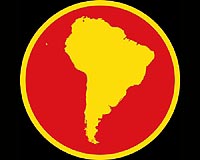 |
Jakarta (UPI) Feb 25, 2009 Indonesia's new environmental law could result in a 40 percent drop in the country's oil and gas production. The law, passed last year, requires businesses to secure environmental permits before launching their operations. Failure to do so would result in the termination of the business license for a given concession or working area. "The Environmental Law will threaten national oil production and it could drop by up to 40 percent from our target," Evita Legowo, director general for oil and gas of Indonesia's ministry of mines and energy told reporters Wednesday. The new regulation, set to take effect in April, could reduce total oil output to less than 500,000 barrels per day this year, short of the 965,000 barrels a day target, she said. Oil and gas have historically been the backbone of the Indonesian economy, contributing up to 30 percent of total state revenue. The regulation would require oil and gas contractors to reduce the maximum temperature of waste water in drilling from 113 degrees Fahrenheit to 104 degrees. The higher temperature is considered a pollutant because it kills many aquatic organisms. Because most of the country's oil fields are mature, enhanced oil recovery methods are used to maximize output. The popular steam-flood method involves injecting steam into the oil reservoir, resulting in waste water temperatures of about 113 degrees Fahrenheit. "Should this regulation be implemented, contractors won't be able to use the steam-flood mechanism any longer and about 50 percent of this year's output target may not be realized," Legowo said. Chevron has been using the steam-flood method since 1985 at Indonesia's onshore Duri field, tripling the field's output as a result. The new environmental regulation would also require oil producers to invest in costly new equipment and may discourage investment in the sector, Legowo said. Contractors would need at least three years to install the necessary equipment to comply with the regulation, said Budi Indianto, director of operations at upstream oil and gas regulator BPMigas, the Jakarta Globe reports. "It will require a big investment," he said. Legowo noted that state oil and gas producer PT Pertamina and PT Chevron Pacific Indonesia would be the two companies most affected by the new law. Further complicating the arena, Legowo said, is that the new law also requires the involvement of regional governments in issuing permits. "Those regulations have to be fulfilled by all oil and gas production sharing contract holders by April. I would have to express my apologies if oil production targets might then not be achieved," she said.
Share This Article With Planet Earth
Related Links Powering The World in the 21st Century at Energy-Daily.com
 Latin unease rising over Falklands oil row
Latin unease rising over Falklands oil rowBuenos Aires (UPI) Feb 25, 2009 Latin American unease over the ongoing Falklands oil row is rising amid public comments by prominent leaders that are helping to fan the sentiments against the United Kingdom for its support of oil prospecting in the Falklands waters. The latest support for the Argentine position came from Brazilian President Luiz Inacio Lula da Silva, who told a Latin American unity conference in Mexic ... read more |
|
| The content herein, unless otherwise known to be public domain, are Copyright 1995-2010 - SpaceDaily. AFP and UPI Wire Stories are copyright Agence France-Presse and United Press International. ESA Portal Reports are copyright European Space Agency. All NASA sourced material is public domain. Additional copyrights may apply in whole or part to other bona fide parties. Advertising does not imply endorsement,agreement or approval of any opinions, statements or information provided by SpaceDaily on any Web page published or hosted by SpaceDaily. Privacy Statement |